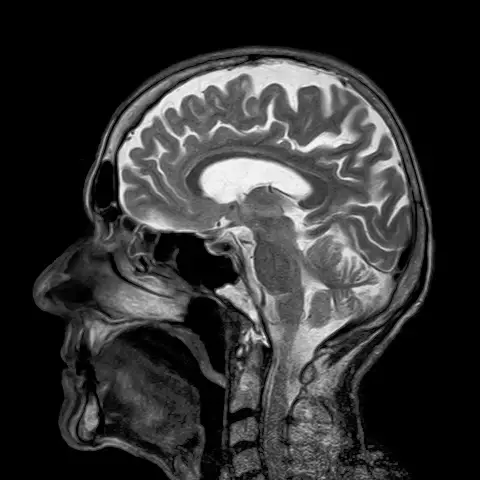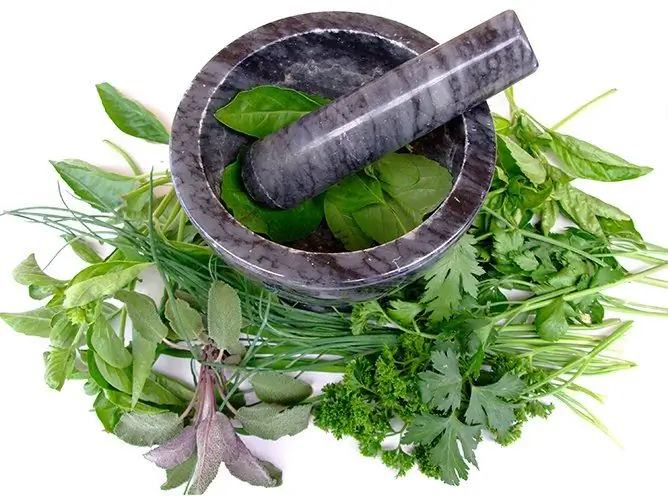- Author Rachel Wainwright wainwright@abchealthonline.com.
- Public 2023-12-15 07:39.
- Last modified 2025-11-02 20:14.
Phytotherapy

Herbal medicine is one of the areas of official medicine, the basis of which is the use of herbs, bee products, and minerals for the treatment and prevention of various diseases.
Herbal medicine has been for several hundred years, only earlier this science was called herbal medicine, and it was practiced by people who understand herbs, who know about their effect on the human body.
Today, modern herbal medicine involves the involvement of specialists with medical education who have received additional knowledge in the field of natural medicine, the use of herbs, berries, tree leaves, and other substances of natural origin for the treatment.
Due to what herbal medicine works - herbs contain biologically active substances: glycosides, essential oils, alkaloids, tannins, which have an effect on the human body, both internally and externally.
Benefits of using herbal medicine
If we compare modern herbal medicine and traditional medicine, then we can see that the science based on the use of herbal medicines wins:
- medicinal herbs and other plants collected in ecologically clean areas do not contain toxins and are hypoallergenic;
- in herbs, beekeeping products, you can find almost all those active substances that are produced by the pharmaceutical industry and even those that have not yet learned to synthesize in laboratories;
- when used correctly, medicinal herbs are safe for humans, they can be taken for a long time;
- herbal extracts, tinctures and other natural remedies have a mild effect on the body, because their active substances are associated with other compounds;
- phytotherapy drugs can have a strong preventive effect: they restore immunity, start metabolism and, thus, naturally heal the body;
- medicines of natural origin have a beneficial effect on several organs at once, which compares favorably with chemical medicines that require rehabilitation therapy after a course of treatment, or the simultaneous administration of drugs that protect the liver and other organs from the negative effects of the active substances of the drugs.
Directions of herbal medicine application

To begin with, it should be said that phytotherapy can be traditional, that is, it can be a component of traditional medicine, or it can be scientific (medical), that is, it can be part of scientific medicine.
The difference between these two areas is that scientific herbal medicine does not imply the use of medicinal plants as monotherapy drugs, but only in combination with recognized and approved drugs, often of synthetic origin.
Modern herbal medicine can treat everything - from diseases of internal organs, including oncology, to skin and hair lesions of various degrees and etiologies.
A huge niche in herbal medicine is occupied by such a direction as getting rid of excess weight. It uses herbs with a diuretic, laxative effect, food supplements of natural origin that reduce hunger, means that increase metabolism.
Basic rules of herbal medicine
It is important to consider that the use of herbal medicine - herbs, leaves and plant bark, requires knowledge of certain rules:
- For a successful cure from diseases, it is advisable to contact a specialist - a phytotherapist. These doctors, like homeopaths, are well versed in herbs, are familiar with the anatomy and physiology of a person, his reaction to various biologically active substances;
- The phytotherapeutic regimen prescribed by the doctor should be followed;
- It is necessary to maintain the prescribed dosages, since poisonous plants can be used in herbal medicine;
- Despite the fact that the result of herbal medicine can be observed after a few days of its use, it is important to continue the treatment further. To consolidate the result of therapy, to get rid of chronic and severe diseases, prescribed herbal remedies are taken for a long time and regularly.
Found a mistake in the text? Select it and press Ctrl + Enter.






